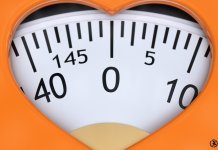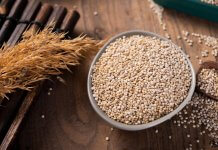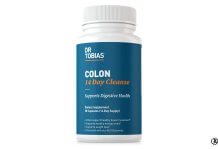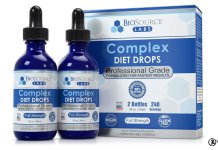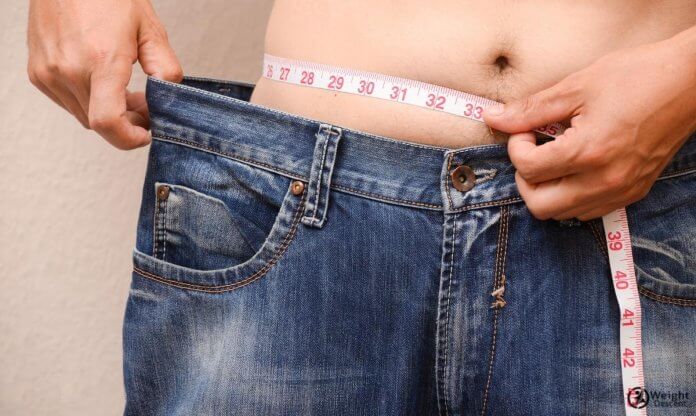I get commissions for purchases made through links on the site. As an Amazon and Clickbank Associate I earn from qualifying purchases. Learn more.
Estimated reading time: 8 minutes
Weight loss sounds very attractive for obese people but do you want to lose weight or lose body fat? If you’re going to lose weight, then it is so simple to stop eating food you will lose weight quickly, but unfortunately, you will lose both muscles and body fat. You want a healthy loss, which includes body fat loss, not muscle loss.
Specific weight figure is not the target but targets the balanced weight and healthy weight. Do not create hype If your weight is going up, but if you feel good at it, you are at your healthy weight. You feel uncomfortable when your body fat is more than your muscles. Muscles are right, but fat accumulated in it is terrible for your health so burn the fat for healthy weight reduction. Here we will discuss the difference between weight loss and fat loss. And how you can preserve your muscles.
Estimated reading time: 8 minutes
Table of contents
Weight Loss vs Fat Loss: Which Matters More for Health?
Embarking on a journey to improve your health and well-being often involves the pursuit of weight loss. However, there’s a crucial distinction between weight loss and fat loss, and understanding this difference can significantly impact your overall health outcomes.
The Scale and Beyond: Weight Loss Explained
Weight loss is a term that many are familiar with, referring to the reduction of overall body weight. This reduction can result from various factors, including changes in muscle mass, water retention, and body fat. While shedding excess weight can have positive health implications, it’s essential to recognize that not all weight loss is created equal.
The Importance of Fat Loss for Health
Fat loss, on the other hand, focuses specifically on reducing body fat while preserving lean muscle mass. This distinction matters significantly because fat, especially visceral fat (the fat surrounding organs), is associated with a higher risk of chronic diseases, including heart disease, diabetes, and metabolic syndrome. Fat loss contributes to improving body composition by reducing the proportion of body fat relative to lean tissue.
A Holistic Approach to Well-Being
While both weight loss and fat loss have their merits, fat loss tends to carry more health benefits. As you embark on your journey, consider the following factors:
- Reducing Disease Risk: Fat loss, particularly visceral fat reduction, is linked to a decreased risk of chronic diseases that can significantly impact long-term health and quality of life.
- Improved Metabolic Health: Losing body fat can lead to improved insulin sensitivity and glucose regulation, reducing the risk of type 2 diabetes.
- Cardiovascular Benefits: Fat loss can contribute to lower blood pressure, improved cholesterol levels, and overall heart health.
- Enhanced Mobility: Reducing body fat can alleviate strain on joints and improve mobility, enhancing your ability to engage in physical activities.
- Positive Body Composition: Prioritizing fat loss can lead to a healthier body composition with a higher proportion of lean muscle mass, which supports metabolic rate and overall strength.
Balancing Health Goals
While fat loss holds significant health benefits, it’s important to approach your health journey with a balanced perspective. Focus on sustainable changes that include a nutritious diet, regular physical activity, and stress management. A holistic approach to health encompasses both physical and mental well-being.
In conclusion, while weight loss can offer positive health outcomes, fat loss holds greater significance for long-term well-being. Prioritizing fat loss through balanced eating and a well-structured fitness routine can lead to a healthier body composition and reduced disease risk. Remember that health is a multifaceted journey, and consulting with healthcare professionals or registered dietitians can provide personalized guidance tailored to your individual needs and goals.
Losing Body Fat
While losing body fat, aim to preserve the body muscles as much as you can. People destroy their diet by eating fewer calories than required by the body, thus losing muscles and fats. It is essential to take the calories needed by your body with healthy food such as; protein, legumes, fats, and low carbs. Eat enough calories according to your body size and activity level. Exercise daily to give your muscle a reason to maintain themselves. But if you do not have a balanced diet according to your body’s demand, you will lose muscles instead of body fat.
Losing Bodyweight
Bodyweight is the sum of muscle mass, fat mass, body water weight, and bone weight. Losing weight is an achievement for many of us but make sure you are not losing muscles. Some people follow a crash diet and cut down many healthy nutrients from the body that will cause muscle mass loss, and thus you find it weight loss. Weight loss is not the main point but maintaining a healthy weight according to your body requirements is necessary to adopt. Your body weight will bounce back if you do not take sufficient food in your diet. You start feeling sluggish or dizzy while performing daily activities.
Let’s see the significant differences in weight loss and fat loss
| Weight loss | Fat loss |
| Decrease fitness | Improved fitness |
| Decrease strength | Greater strength |
| Poor performance | Best performance |
| Early aging | Delayed aging |
| Reduced immunity | Boost or strengthen the immune system |
Focus on losing the extra at a loss instead of weight loss. If you want a quick weight loss by some supplements, then it may affect your health. Rapid weight loss may loss a body mass. By focusing on fat loss, the muscles’ fats packets may break down by a healthy diet, and the body uses fat packs as a source of energy.
“emphasizing fat loss rather than weight loss can decrease the risk of several chronic diseases, help reduce the risk of age-related muscle loss, and reduce fat regain.”
Sustainable Fat Loss: Slow and Steady Wins the Race
In the pursuit of fat loss and improved health, the age-old adage “slow and steady wins the race” holds true. While rapid weight loss strategies might promise quick results, sustainable fat loss is rooted in a balanced approach that prioritizes long-term well-being over short-term fixes. Here’s why adopting a gradual and sustainable approach is key to achieving lasting success:
1. Consistency Over Extremes:
Rapid weight loss methods often involve extreme restrictions or drastic changes that are difficult to sustain. Sustainable fat loss focuses on creating healthy habits that you can maintain over time, resulting in more consistent progress.
2. Preserving Lean Muscle Mass:
Rapid weight loss may lead to muscle loss along with fat loss. This can lower your metabolic rate and impact your overall body composition. A gradual approach allows for the preservation of lean muscle, supporting a healthy metabolism.
3. Nutrient Adequacy:
Crash diets may lack essential nutrients, leading to deficiencies and potential health issues. Sustainable fat loss encourages a well-balanced diet that provides the necessary vitamins, minerals, and macronutrients for optimal health.
4. Mindset and Behavior Change:
Rapid weight loss often overlooks the psychological aspect of changing eating habits. Sustainable fat loss focuses on gradual behavior changes, fostering a positive relationship with food and promoting a healthier mindset.
5. Long-Term Results:
The goal of sustainable fat loss is not just shedding pounds but maintaining the progress you’ve achieved. Rapid weight loss can result in rebound weight gain once normal eating patterns resume, while gradual fat loss is more likely to lead to lasting results.
6. Reducing the Risk of Health Complications:
Rapid weight loss can strain the body and increase the risk of gallstones, electrolyte imbalances, and other health issues. A gradual approach minimizes these risks and supports overall well-being.
7. Enhancing Physical Performance:
Sustainable fat loss allows you to maintain energy levels, which is essential for maintaining an active lifestyle. This leads to improved physical performance and a higher likelihood of staying committed to your fitness routine.
8. Mindful Eating and Enjoyment:
Sustainable fat loss encourages mindful eating and savoring your meals. It allows for occasional treats and a balanced relationship with food, promoting long-term satisfaction.
9. Emotional Well-Being:
Rapid weight loss can be emotionally taxing and lead to feelings of deprivation. A gradual approach prioritizes emotional well-being, reducing stress and anxiety related to dieting.
10. Lifestyle Integration:
Sustainable fat loss integrates seamlessly into your lifestyle, allowing you to navigate social events and holidays without feeling restricted.
In conclusion, adopting a gradual and sustainable approach to fat loss offers numerous advantages over rapid weight loss methods. It focuses on holistic well-being, balanced nutrition, and positive behavior changes that can be maintained for the long term. By prioritizing sustainable fat loss, you’re not only achieving a healthier body composition but also setting yourself up for a lifetime of improved health and vitality.
Conclusion
Never aim to lose weight; in any case, always try to stay healthy by losing extra fats from the body. You desire to break the fat either from the food you eat or the stored fat in the muscles o body. Stored fat is present in muscles; the more muscles you have more fat you will burn. So focus on the gradual changes in weight, either gain or loss. If you start losing more than two pounds in a week, you are losing body muscles instead of body fat. Do not be too quick in losing weight. Weight loss is a slow but constant process. Stay motivated to lose extra body fat.
Resources
- Verywell Fit: Weight Loss vs. Fat Loss: What’s the Difference?: Website: https://www.verywellfit.com/weight-loss-vs-fat-loss-whats-the-difference-4846526 This article explains the difference between weight loss and fat loss and provides insights into their effects on health and well-being.
- Healthline: Weight Loss vs. Fat Loss: What’s the Difference?: Website: https://www.healthline.com/nutrition/weight-loss-vs-fat-loss Healthline breaks down the distinction between weight loss and fat loss, addressing the impact on metabolism and disease risk.
Books
- “Health at Every Size: The Surprising Truth About Your Weight” by Linda Bacon Dr. Bacon introduces the Health at Every Size (HAES) philosophy, emphasizing the importance of self-acceptance, body positivity, and healthy habits over weight-focused goals.
- “The Slow Down Diet: Eating for Pleasure, Energy, and Weight Loss” by Marc David This book explores the relationship between eating habits, metabolism, and overall health, emphasizing the importance of a balanced approach to eating.
- “Body Kindness: Transform Your Health from the Inside Out–and Never Say Diet Again” by Rebecca Scritchfield Rebecca Scritchfield offers a compassionate approach to health and well-being, encouraging readers to focus on self-care, intuitive eating, and positive lifestyle changes.



